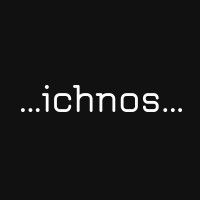Ichnos presentations include clinical and preclinical data on ISB 1342 (CD38xCD3), ISB 1442 (CD38xCD47) and an oral session on ISB 2001, its first TREAT™ trispecific (BCMAxCD38xCD3) antibody
NEW YORK, Dec. 12, 2022 /PRNewswire/ -- Ichnos Sciences Inc., a global clinical-stage biotechnology company developing innovative multispecific immune cell engager antibodies in oncology, shared data during an oral presentation at the 64th American Society of Hematology (ASH) Annual Meeting and Exposition supporting the advancement of its first-in-class TREAT™1 trispecific antibody, ISB 2001, to a first-in-human clinical trial. Both IND and CTN filings are planned during the first quarter of calendar year 2023 and preparations for a Phase 1 clinical trial in relapsed/refractory multiple myeloma (RRMM) are under way.
During the oral session on Saturday, December 10, Mario Perro, PhD, Vice President of Oncology Research at Ichnos Sciences, showed the benefits of the design of ISB 2001, a BCMAxCD38xCD3 trispecific antibody based on Ichnos' proprietary BEAT® 2 platform, which promotes strong avidity induction and enables efficient and potent killing of multiple myeloma (MM) cells. Dual targeting with ISB 2001 may overcome escape mechanisms associated with BCMA and CD38 therapeutic antibodies, including approved T cell engagers.
More specifically, the data presented show that the design of ISB 2001 results in higher tumor cell killing potency compared to other treatment options, including teclistamab, alnuctamab, and EM-801, in ex vivo cytotoxicity assays with smoldering MM, newly diagnosed MM, RRMM and plasma cell leukemia. Additionally, these data support the potential benefit of ISB 2001 for RRMM patients who may experience decreased effectiveness of other treatments due to target downregulation mechanisms or presence of high levels of inhibitory soluble factors.
"Tremendous need remains for innovative and effective treatments for patients with multiple myeloma, and while some treatments may initially be effective, developed resistance and relapse are unfortunately common over time," said Cyril Konto, M.D., President and Chief Executive Officer of Ichnos. "We are pleased to have the opportunity to present data at ASH showcasing the potential for ISB 2001 to overcome mechanisms that lead to disease progression, and excited about advancing this asset to clinical trials in 2023. Beyond multiple myeloma, preclinical data presented for ISB 1442 provide a strong rationale in acute myeloid leukemia, and we plan to initiate a Phase 1 study for this indication in 2023."
Preclinical data on ISB 2001 presented at ASH include:
Higher killing potency of tumor cell lines across varying expressions of both BCMA and CD38 compared to teclistamab, alnuctamab and EM-801;
Superior potency of ISB 2001 relative to teclistamab, with 100 percent complete responses resulting in tumor elimination in multiple myeloma in vivo models;
Superior cytotoxicity over teclistamab in ex vivo assays in patient bone marrow aspirates representing different stages of MM progression;
Increased potency in vitro when compared to the combination of daratumumab and teclistamab;
Reduced inhibition by soluble factors (sCD38, sBCMA, APRIL) when compared to teclistamab, alnuctamab and EM-801, ensuring tumor-killing potency is maintained; and
Half-life of more than 7 days in mice, suggesting acceptable dosing regimen in clinic.
In addition to the oral presentation on trispecific antibody ISB 2001 described above, Ichnos was selected for three poster presentations of data on other pipeline assets:
1. Initial Results of Dose Escalation of ISB 1342, a Novel CD3xCD38 Bispecific Antibody, in Patients with Relapsed / Refractory Multiple Myeloma (link), presented by Sanjay Mohan, MD, on Sunday, December 11:
Showed that treatment with ISB 1342 was well tolerated at the evaluated Q1W dose levels up to cohort 109 (2µg/kg priming, 8µg/kg targeted dose), that observed CRS events were moderate and manageable with supportive care, and that no increased risk of infection has been observed
Dose escalation continues with participants enrolling in additional cohorts
2. Preclinical Evaluation of ISB 1442, a First-in-Class CD38 and CD47 Bispecific Antibody Innate Cell Modulator for the Treatment of AML and T-ALL (link), presented by Stefano Sammicheli, PhD, on Sunday, December 11:
Showed that ISB 1442 induces killing of acute myeloid leukemia (AML) and T-cell acute lymphoblastic leukemia (T-ALL) cell lines in multiple in vitro assays, and has superior activity to daratumumab in AML and T-ALL cell lines expressing intermediate or low CD38 expression
Demonstrated more frequent killing of AML blasts and a trend of higher potency compared to monospecific anti-CD38 daratumumab or anti-CD47 (5F9)
3. A Phase 1/2, First-in-Human, Multicenter, Open-Label, Dose Escalation and Dose-Expansion Study of Single-Agent ISB 1442 in Patients with Relapsed/Refractory Multiple Myeloma (link), to be presented by Tony Jiang, MD PhD on the evening of Monday, December 12:
Provides an overview of the ongoing Phase 1/2 study (NCT05427812)
All four of Ichnos' presentations and corresponding data will be available for review on the Ichnos website (link). More information about the three oncology assets highlighted at the meeting, and the rest of Ichnos' pipeline can be found at this link.
About Ichnos Sciences Inc.
A fully integrated, global biotech with the spirit of a start-up, Ichnos is shifting the way the world thinks about innovation in medicine through its research and development of transformative, disease-centric treatments in oncology. The company, with headquarters in New York, N.Y., is rapidly advancing a clinical-stage pipeline of novel, first-in-class candidates designed to address complex diseases and to treat patients holistically. With its patented BEAT® technology platform and pioneering teams, Ichnos Sciences has a mission to provide breakthrough, curative therapies that will extend and improve lives, writing a new chapter in healthcare.
For more information, visit IchnosSciences.com.
CONTACT
Grace Maguire
Head of Communications and Corporate Affairs
Ichnos Sciences
Corporate.Communications@ichnossciences.com
1 TREAT™: Trispecific Engagement by Antibodies based on the TCR
2 BEAT®: Bispecific Engagement by Antibodies based on the TCR








